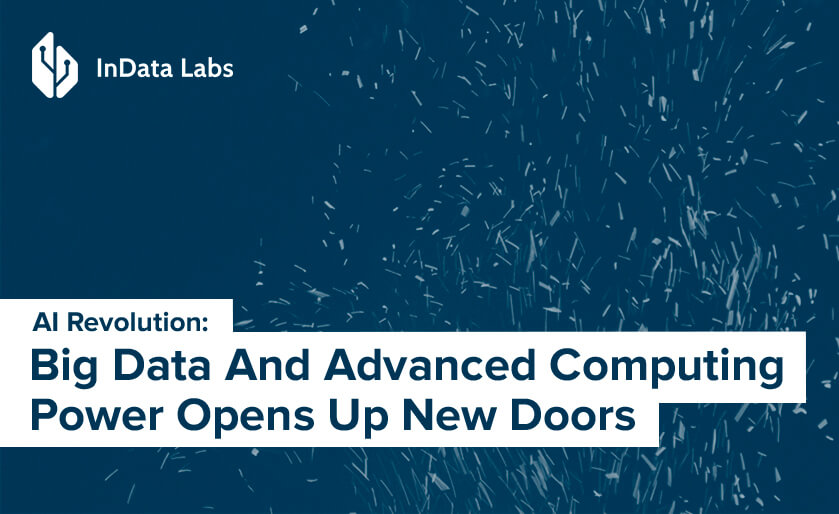Artificial Intelligence (AI) is redefining the particular landscape of application development, from robotizing mundane tasks to be able to generating complex computer code snippets. AI-powered coding tools, like GitHub Copilot and OpenAI’s Codex, can offer developers with code suggestions, streamline debugging, and even automate entire sections regarding the expansion process. Although these advancements carry great promise, right now there are also a few drawbacks and hazards associated with AI in coding. Regarding developers, understanding each the benefits in addition to limitations is vital in order to effectively leveraging AJE without compromising in code quality or even creativity.
Pros involving Using AI inside Coding
1. Enhanced Efficiency and Production
Automated Code Recommendations: AI-powered tools will offer real-time code recommendations, helping developers create faster and even more efficiently. These recommendations in many cases are based in context and former codes, making them particularly useful for boilerplate code or popular patterns.
Streamlined Debugging: AI can support in identifying bugs, recommending fixes, and even even automatically implementing certain corrections. This could save developers hrs that would normally be spent in troubleshooting and debugging.
Enhanced Documentation: AJE tools can automatically generate documentation structured on code structure and comments, which usually ensures that in fact complex codebases remain accessible and understandable some other team associates.
2. Assistance with Compound Code Generation
Help for Multiple Encoding Languages: Many AJAI coding tools assistance multiple languages, permitting developers to write signal in languages they are less knowledgeable about. For example, some sort of developer proficient inside Python but significantly less familiar with JavaScript can still publish effective JavaScript computer code with AI assistance.
Complex Algorithm Generation: AI can help developers in creating complex algorithms simply by suggesting one of the most effective methods, even regarding tasks they may come across challenging. Including data processing, machine studying models, as well as other superior functions that may otherwise require deep competence.
3. Enhanced Studying for New Programmers
Real-Time Feedback plus Suggestions: For amateur developers, AI offers real-time guidance in addition to feedback, helping all of them learn as they will code. This hands-on assistance can connection gaps in expertise and boost their own confidence in taking on new projects.
Direct exposure to Industry Standards and Best Practices: Several AI-driven coding gear integrate industry-standard procedures, helping new builders adopt efficient code habits early on. Since they receive recommendations, beginners are exposed to optimized, clean, and efficient computer code practices.
4. Increased Code Consistency and even Quality
Adherence to Coding Standards: AJE tools often advise code that sticks to widely approved coding standards, being able to help maintain a regular type across teams in addition to projects. This is particularly beneficial for large clubs where maintaining regularity in coding style can otherwise end up being challenging.
Reduction involving Human Errors: By automating repetitive or perhaps error-prone tasks, AI reduces the likelihood of human mistake. For instance, AI can automatically close open brackets or perhaps ensure variable name consistency, minimizing format errors and prospective bugs.
Cons of AI in Coding
1. Dependency in AI and Lowered Problem-Solving Skills
Overreliance on AI Suggestions: Developers may turn into overly reliant on AI suggestions, primary to a fall in problem-solving skills and coding principles. This dependency can hinder a developer’s ability to improve or troubleshoot problems independently.
Limited Opportunity of AI Comprehending: While AI can easily generate code, this doesn’t necessarily understand the problem context. Over-relying on AI-generated signal can result inside solutions that satisfy syntactical requirements although miss the much wider functional requirements, which often could lead in order to suboptimal or inappropriate outcomes.
2. Privateness and Security Concerns
Data Privacy Hazards: Many AI coding tools require access to codebases and, in some cases, sensitive data. This specific poses potential privateness risks, especially any time using proprietary or even confidential code. Generally there are concerns of which AI tools may inadvertently leak very sensitive information or open vulnerabilities.
Security Weaknesses: AI might accidentally suggest insecure signal, especially if it hasn’t been skilled with a robust understanding of secure coding practices. Developers counting too heavily upon AI-generated code may inadvertently introduce weaknesses, creating security dangers in production environments.
3. Quality Command and Possibility of Mistakes
Inaccurate Code Suggestions: AI tools are usually not infallible. On many occasions, they generate signal that may operate on the top although doesn’t meet more deeply project requirements. Developers need to carefully review AI-generated code to ensure it aligns with practical and business requirements.
Probability of Producing Unreadable Code: AI-generated program code can sometimes be complex in addition to difficult to understand, perhaps for experienced programmers. If not carefully managed, this can cause a codebase that’s hard to maintain plus troubleshoot, especially any time working in groups.
4. Cost and Accessibility Issues
Membership and Usage Costs: Many of the particular most powerful AJE coding tools are certainly not free. GitHub Copilot, for instance, requires a subscription, which in turn can be a barrier for person developers or tiny teams with limited budgets. Global companies of which deploy AI resources at scale may well face substantial fees.
Hardware and Processing Power Requirements: Many advanced AI resources and models require high-end hardware or perhaps cloud computing solutions. This limits ease of access, particularly for developers in smaller or less well-funded companies, as well as those functioning in regions along with limited infrastructure.
five. Ethical and Task Market Implications
Probable Job Displacement: The increasing automation of coding tasks raises questions about job security for entry-level and junior builders. As AI takes on more code responsibilities, there exists concern that with regard to basic coding skills might decline, affecting possibilities for new designers.
Intellectual Property Problems: AI models are really trained on vast amounts of code by public repositories. This kind of raises ethical inquiries regarding ownership plus originality. If AJE generates code comparable to proprietary code, lawful and ethical concerns could arise, specifically around intellectual property.
Key Considerations with regard to Developers Using AJE in Coding
a single. Striking a Balance Between Automation plus Skill Development
When AI is a wonderful production enhancer, it’s important for developers to continue honing their very own foundational skills. Programmers should view AJAI as a health supplement to, rather compared to a replacement regarding, their knowledge plus expertise.
2. Putting first Security and Privateness
Before adopting AI-powered coding tools, builders should thoroughly assess the security and privacy policies regarding these tools, especially when working with delicate data. Companies and even developers need to understand how they manage data and ensure they align along with organizational security criteria.
3. Regularly Looking at and Testing AI-Generated Code
It’s essential to review AI-generated computer code carefully. Regular testing and validation can assist ensure that AJAI suggestions don’t give up quality or features. While AI can handle routine responsibilities, complex or delicate code ought to be carefully tested by the developer.
4. Taking on AI as a new Collaborative Companion
AI should be considered as a tool of which complements a developer’s skills. By making use of AI as a collaborative partner rather than a complete solution, developers can easily leverage AI’s efficiency while still applying their expertise in order to solve complex issues and drive development.
5. Understanding Ethical Implications and Being Educated
Developers need to stay informed about the ethical effects of using AI in coding, especially regarding intellectual property and the wider effect on the application development employment market. Remaining aware of market standards and honest practices can aid developers make accountable choices when applying AI tools.
Summary
AI in coding offers exciting choices, transforming how developers approach coding responsibilities and streamlining computer software development processes. On find more , it’s necessary to understand the limitations and potential downsides. With regard to developers, using AJAI effectively means stunning a balance involving embracing automation plus maintaining their problem-solving abilities, staying meticulous about privacy and security, and understanding the ethical proportions of AI-generated code.
As AI continually evolve, the many successful developers will certainly be individuals who could harness the power of AJAI without losing view of the principles that make great software possible: creativity, important thinking, and a deep understanding of code principles.

